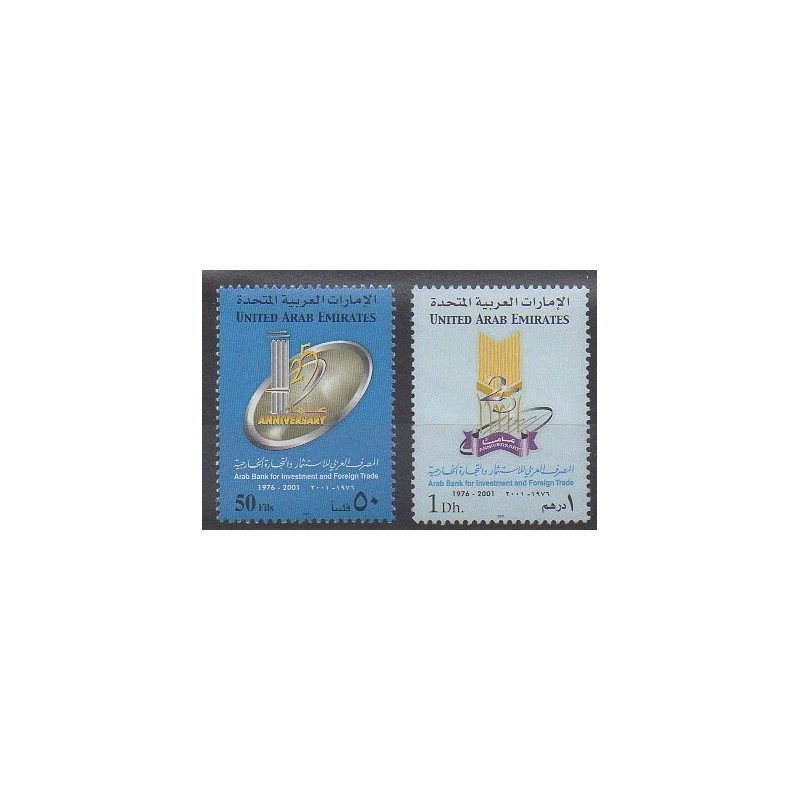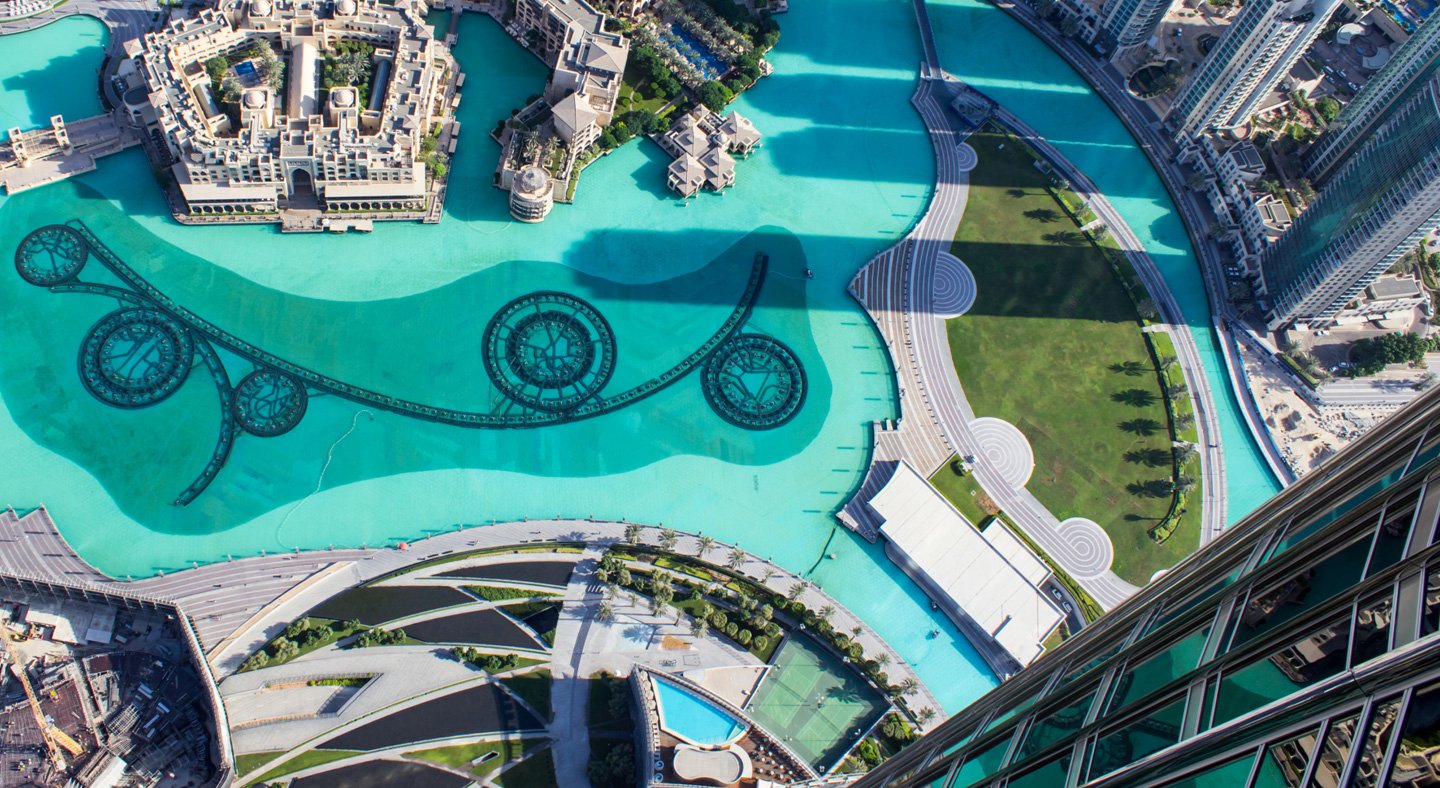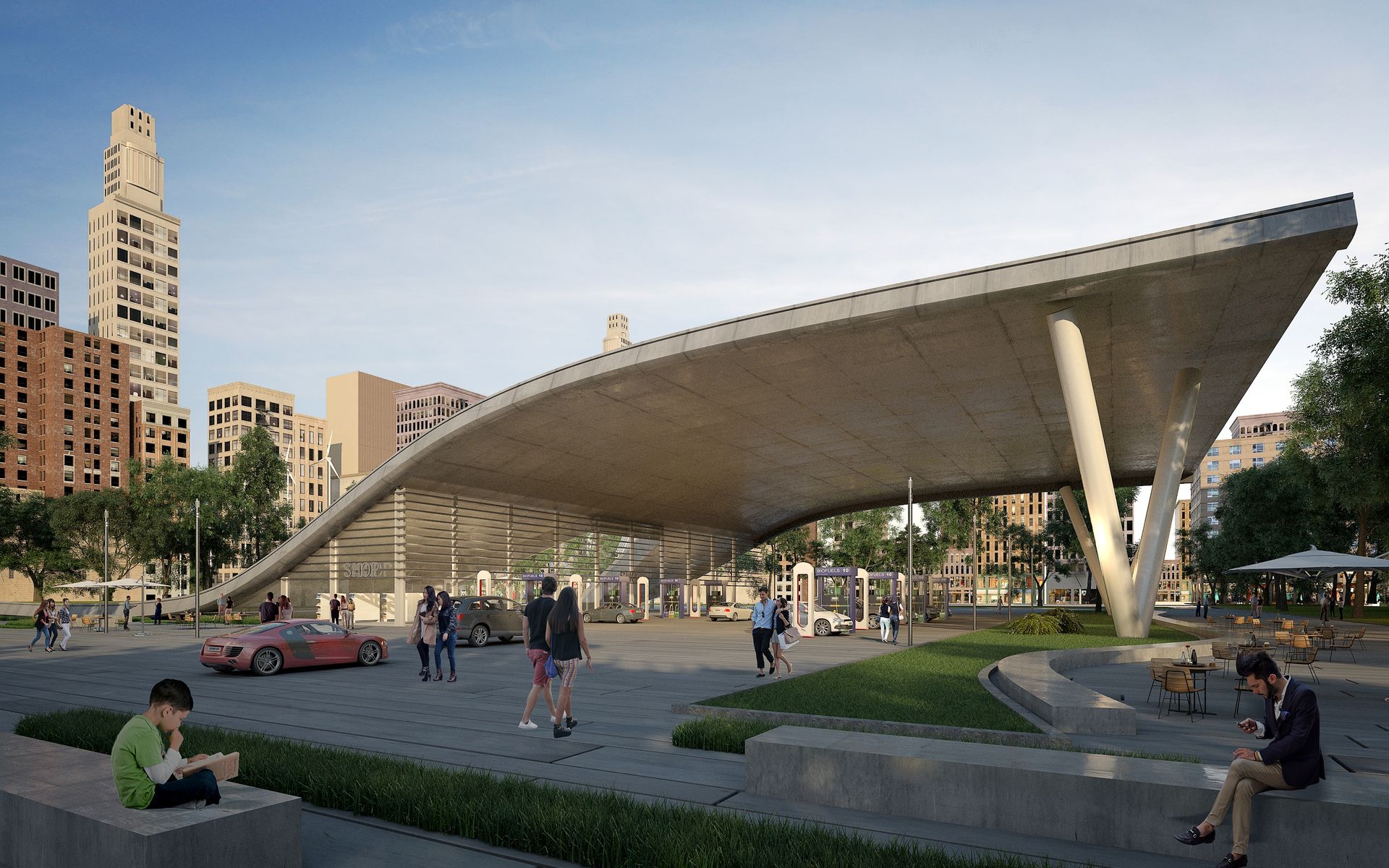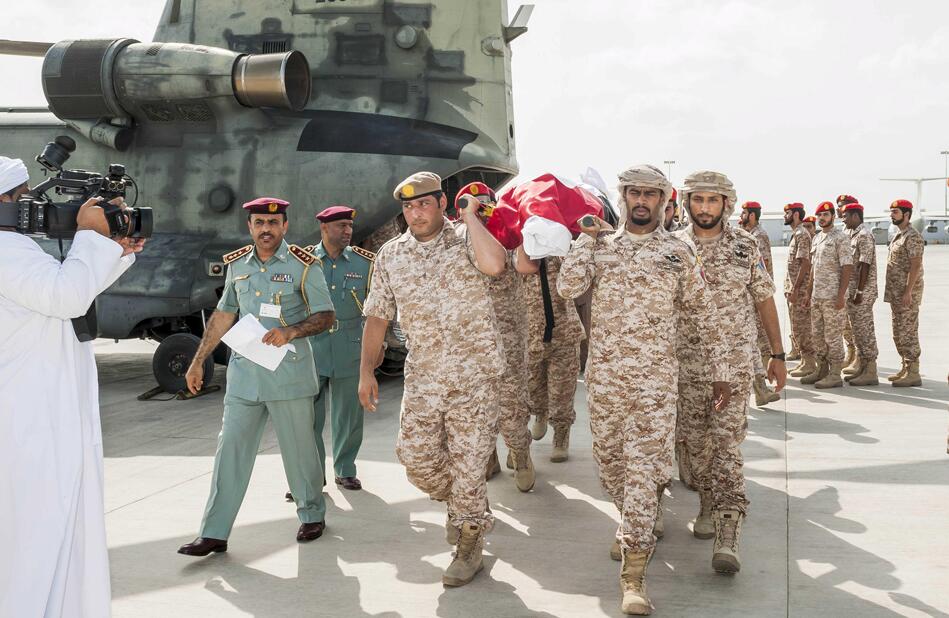The UAE is a federation of seven emirates, each governed by a hereditary emir, who choose one of their members to be the president of the federation. The constituent emirates are Abu Dhabi, Ajman, Dubai, Fujairah, Ras al-Khaimah, Sharjah, and Umm al-Quwain. The capital is Abu Dhabi, which is also the state's center of commercial and cultural activities. Islam is the official religion of the UAE, and Arabic is the official language.
Since 1962, when Abu Dhabi became the first of the emirates to begin exporting oil, the country's society and economy have been transformed. The late Sheikh Zayed, ruler of Abu Dhabi and president of the UAE at its inception, oversaw the development of the Emirates and steered oil revenues into healthcare, education and national infrastructure. It also possesses the world's seventeenth largest natural gas reserves The UAE has one of the most developed economies in Western Asia. Human occupation has been traced back to the emergence of anatomically modern humans from Africa some 124,000 BCE through finds at the Faya-2 site in Mleiha, Sharjah. Burial sites dating back to the Neolithic Age and the Bronze Age include the oldest known such inland site at Jebel Buhais. Known as Magan to the Sumerians, the area was home to a prosperous Bronze Age trading culture during the Umm Al Nar period which traded between the Indus Valley, Bahrain and Mesopotamia as well as Iran, Bactria and the Levant.
The ensuing Wadi Suq period and three Iron Ages saw the emergence of nomadism as well as the development of water management and irrigation systems supporting human settlement in both the coast and interior. The Islamic age of the UAE dates back to the expulsion of the Sasanians and the subsequent Battle of Dibba. The UAE' history of trade led to the emergence of Julfar, in the present-day emirate of Ras Al Khaimah, as a regional trading and maritime hub in the area. The maritime dominance of the Arabian Gulf by Emirati traders led to conflicts with European powers, including the Portuguese Empire and the British Empire. Its reliance on foreign workers remains a pressing problem, partly because the government is unwilling to grant citizenship privileges to non-Emirians.
Policies approved in 2007 allowed for companies to regulate the activities of foreign workers but gave the workers no additional rights. A longtime boundary dispute with Oman was ratified in 2003, but the agreement had not been published as of 2008. In addition, drug traffickers use the UAE ports as a transfer point in the exchange of illegal drugs.
What Are The Names Of All The Emirates In The UAE As a major financial center, the UAE is vulnerable to money laundering. Although the government has imposed some controls, its informal banking sector is largely unregulated. The emirates have a long history of intertribal wars and violence, and although they are now united in an attempt at cooperation, old conflicts continually erupt. Because Abu Dhabi is the largest emirate and has the largest oil reserves , it makes all the decisions in the UAE. Dubai is the only emirate large and wealthy enough to challenge Abu Dhabi's decisions.
The other emirates are all too small and too dependent on financial support from Abu Dhabi to risk speaking out against the Abu Dhabi-dominated government. Dubai occasionally acts on its own, going against decisions handed down by the Abu Dhabi leaders. The union of the emirates is too young, and the new oil wealth and resulting development too recent, to determine if the UAE will be able to maintain its unity and function as a stable federation of states. The South Africa of today is one of the most sophisticated, diverse and promising emerging markets globally. Strategically located at the tip of the African continent, South Africa is a key investment location, both for the market opportunities within its borders and as a gateway to the rest of the Continent.
The country is the economic powerhouse of Africa and forms part of the BRICS group of countries with Brazil, Russia, India and China, as well the G20 group of nations with the most advanced and important economies in the world. Our wild life is world renowned, and our safari packages superb. Whether you want to merely relax on the beach or spend time in nature, go hunting, whale watching, and shark diving, do shopping or spend leisure time in a world class hotel or game lodge, South Africa is the place to go. Do check out the website of SA Tourism and the links provided for more detail. Since then, the UAE has been a sovereign nation, enjoying the profits of its natural resources—its reserves of oil and natural gas are the seventh-largest in the world, and it has the seventh-highest GDP per capita. This wealth has turned the Emirates into a major hub of trade, travel, tourism and finance.
Dubai's Burj Khalifa, the tallest structure in the world, is emblematic of the Emirates' dramatic construction boom and rise to global prominence. ENEC has selected a nuclear-experienced managing agent to support its development and solicitation of bids for the nuclear energy programme. Key positions within the organization were filled with experienced nuclear contractors, while other key positions have been supported by nuclear experts. In addition, ENEC was able to tap into the experienced professionals from the UAE's long-established oil and gas, energy and mega-project industries to build its management ranks. Focusing on national capacity building, ENEC maintained an Emiratization rate of around 60% in 2020 for its employees.
The UAE has developed from a juxtaposition of Bedouin tribes to one of the world's most wealthy states in only about 50 years. Between 2000 and 2018, average real gross domestic product growth was at close to 4%. It is the second largest economy in the GCC , with a nominal gross domestic product of US$414.2 billion, and a real GDP of 392.8 billion constant 2010 USD in 2018. Since its independence in 1971, the UAE's economy has grown by nearly 231 times to 1.45 trillion AED in 2013. The non-oil trade has grown to 1.2 trillion AED, a growth by around 28 times from 1981 to 2012. Backed by the world's seventh-largest oil deposits, and thanks to considerate investments combined with decided economic liberalism and firm Government control, the UAE has seen their real GDP more than triple in the last four decades.
Nowadays the UAE is one of the world's richest countries, with GDP per capita almost 80% higher than OECD average. Islam is the official religion and Arabic is the official language. The United Arab Emirates' oil and natural gas reserves are the world's sixth and seventh-largest, respectively. Zayed bin Sultan Al Nahyan, ruler of Abu Dhabi and the country's first president, oversaw the development of the Emirates by investing oil revenues into healthcare, education, and infrastructure. The United Arab Emirates has the most diversified economy among the members of the Gulf Cooperation Council. In the 21st century, the country has become less reliant on oil and gas, and is economically focusing on tourism and business.
The government does not levy income tax, although there is a corporate tax in place and a 5% value-added tax was established in 2018. The fact that the traditional tribal system of government each emirate was based on similar political principles facilitated the establishment of the UAE. Hereditary dynastic family rule still operates in each emirate as a local government system under the umbrella of the federal system.
Members of the ruling families occupy the most important positions in their political administrations. While the political system continues to retain some of its traditional values at formal and informal levels, it has been able to keep pace with economic and social change. The sheikhs are highly regarded for performing the dual roles of modernizers and guardians of the cultural heritage.
They still have traditional majlis where citizens have access to their leaders. ENEC has developed a comprehensive website that includes key information on nuclear energy, nuclear energy in the UAE and the country's programme. ENEC is also active on all major social media channels, regularly posting corporate and nuclear-specific information. Additionally, Khalifa University hosted the Nuclear Energy Management School, which provides training courses delivered by the IAEA and organized in cooperation with FANR, for students and young professionals from the Asia and Pacific region. Offered in 2012, 2015, and 2017, the courses provided relevant knowledge to ensure a solid nuclear expert foundation, through building leadership skills to manage nuclear energy programmes. Khalifa University, which is an IAEA Collaborating Center since 2018, provides support to activities on nuclear infrastructure development in newcomer countries.
In light of these provisions, FANR collaborated with institutions of responsible nations aimed at developing R&D capabilities within its nuclear energy programme, as well as to use the operating experience of other countries on major safety issues. As of 2020, FANR is engaged in 13 research collaboration agreements with countries such as Belgium, France, Norway and the United States of America. Research and development is an essential building block for a sound regulatory system as it provides world-wide access to tools, data and expertise necessary for rigorous decision-making to ensure regulations have safety focus.
Many countries with small civil programmes established regulatory programmes and benefitted from bilateral and multilateral cooperation to meet their needs. While it is industry's responsibility to conduct the R&D necessary to establish the safety case for an activity, regulatory bodies conduct research to provide a sound scientific basis for regulations and regulatory decisions. Moreover, ENEC is now concluding the development of its R&D strategy to identify opportunities to utilize knowledge and expertise in related sectors. Much of the work force in the UAE are foreign expatriates - hence the country's population makeup being so diverse, with Emirati citizens being a minority in their own country. All Emirati citizens receive profit sharing cheques from the government and mostly opt to work in the government sector.
Migrant workers from the Indian Subcontinent and the Philippines are mostly employed in the service and construction industries for low wages. Many mid-level jobs are filled by expats and Emirati nationals who work in the private sector, in addition to expats who work in high-skilled and managerial positions and typically enjoy a very good standard of living. If you're interested in working in the UAE there are opportunities in oil and gas, banking, engineering and education. The public school system in Abu Dhabi is hiring a large numbers of English-language teachers from Western countries.
These teaching jobs in the UAE are accessible through official recruiters of the Abu Dhabi Education Council. The UAE leadership has driven forward economic diversification efforts already before the oil price crash in the 1980s, and the UAE is nowadays the most diversified economy in the Middle East and North Africa region. Although the oil and gas sector does still play an important role in the UAE economy, these efforts have paid off in terms of great resilience during periods of oil price fluctuations and economic turbulence. While the government may still adjust the exact arrangement of the VAT, it is not likely that any new taxes will be introduced in the foreseeable future. Additional taxes would destroy one of the UAE's main enticements for businesses to operate in the country and put a heavy burden on the economy.
The UAE emits a lot of carbon dioxide per person compared to other countries. The UAE's monetary policy stresses stability and predictability, as the Central Bank of the UAE keeps a peg to the US Dollar and moves interest rates close to the Federal Funds Rate. This policy makes sense in the current situation of global and regional economic and geopolitical uncertainty. In the mid- to long term, however, the peg will become less important, as the UAE transitions to a knowledge-based economy – and becomes yet more independent from the oil and gas sector .
As impressive as economic growth has been in the UAE, the total population has increased from just around 550,000 in 1975 to close to 10 million in 2018. This growth is mainly due to the influx of foreign workers into the country, making the national population a minority. The UAE features a unique labour market system, in which residence in the UAE is conditional on stringent visa rules. This system is a major advantage in terms of macroeconomic stability, as labour supply adjusts quickly to demand throughout economic business cycles.
Until then, the emirates had been poor, with pearling, fishing, and sheep and goat herding being the main forms of livelihood. The discovery and production of oil brought new wealth into the area, turning the Emirians from among the poorest people of the world into some of the wealthiest. The other emirates have yet to discover oil on their land and depend on Abu Dhabi and Dubai for financial support. Proven oil reserves in Abu Dhabi are estimated to last for another 200 years, based on production rates in 2008. Dubai's oil reserves were projected in the late 1990s to run out in about 30 years, but the UAE has been decreasing its oil production and estimated in 2008 that overall reserves could last more than 90 years.
Dubai has become a world trading center and will continue to have international significance and a source of income after its oil runs out. This is a major way of distributing oil wealth among the national population. The immigrant population also benefits to some extent, particularly in regard to medical care.
The United Arab Emirates has the world's sixth largest proven oil reservesand the fifthlargest natural gas reserves, making the country a critical partner and responsible supplier in global energy markets. Although a mainstay in the economy, oil exports account for about 25% of the UAE's gross domestic product, as a result of government policies designed to diversify the UAE economy. However, domestic energy consumption has continued to rise steadily with all electricity production and water desalination being generated by thermal plants, which has resulted in the UAE becoming a net importer of natural gas since 2008.
There is currently a shift toward decoupling of power and water sectors. The states gained autonomy following World War II (1939–45), when the trucial states of Bahrain and Qatar declared independent statehood. The rest were formally united in 1971, with the city of Abu Dhabi serving as the capital. The introduction of mandatory health insurance in Abu Dhabi for expatriates and their dependents was a major driver in reform of healthcare policy.
Abu Dhabi nationals were brought under the scheme from 1 June 2008 and Dubai followed for its government employees. The UAE attracts medical tourists seeking cosmetic surgery and advanced procedures, cardiac and spinal surgery, and dental treatment, as health services have higher standards than other Arab countries in the Arabian Gulf. Roads are paved and well maintained; multilane divided highways connect the major cities and link the UAE with neighboring countries.
Automobiles and trucks crowd the streets, and four-wheel-drive vehicles race across the desert sands. A railway system is being planned to relieve some of the traffic congestion, particularly that caused by cargo trucks. Five of the emirates have international airports, and there are radio and television broadcasts in Arabic and other languages, and broadcasts from other countries can be picked up on the many satellite dishes on apartment buildings and private homes. Telephone service is state-of-the-art; fax machines are very common. Secular national holidays include National Day, which is celebrated on December 2, and New Year's Day on January 1.
For example, August 6 is a holiday in Abu Dhabi marking the accession of Sheikh Zayid. Muslim holidays follow the lunar calendar, moving back by 11 days each Western year, so their dates are not fixed on the standard Gregorian calendar. Friday is the Islamic day of rest, so most businesses and services are closed on Fridays. All government offices, private businesses, and schools are closed also during Eid Al-Fitr and Eid Al-Adha. Placed 284th in the global rankings, United Arab Emirates University comes fifth in the Arab region ranking.
It's based in the city of Al Ain in the emirate of Abu Dhabi, and is the oldest university in the country – though still relatively young, having been established in 1976. Its alumni community includes many powerful leaders in the fields of government and business. "In exchange for its acceptance that dubious players and monies be based in the country, the UAE merely asks wealthy Africans to stay out of local politics and stay within the boundaries of local law," Soares de Oliveira said.
In 2019, the UAE reached a major milestone with the certification and licensing of its first Senior Reactor Operators , Reactor Operators and Local Operators . These individuals have completed a comprehensive training programme, which lasted for three-years and was developed by ENEC and Nawah, according to the regulations set out by FANR. The first group of SROs and ROs had the opportunity to train in the Republic of Korea, South Africa, the United Arab Emirates and the United States of America. The total number of certified SROs and ROs is 72, of which three are UAE nationals, and three are females.
These first operators will soon be joined by many more qualified individuals to provide a sustainable pipeline of talent for the decades of operations ahead. Due to the UAE's small native population, international experts were brought on board to ensure that the project would develop and maintain a professional nuclear cadre. At the national level, a base of technical expertise was brought in from other sectors as fundamental support for the programme. Additionally, extensive efforts were put into launching educational programmes to qualify a large set of young engineers and nuclear-related experts. Following this strategy, FANR, ENEC, and Khalifa University began implementing various steps in order to meet the needs related to their human resource development plans.
Central to the UAE's approach to developing a nuclear energy programme has been the importance of building a qualified workforce for the short- and long- term. The UAE Government has been open with the public about its consideration to pursue nuclear energy from the very beginning, even before the decision to embark on a nuclear energy programme was taken. Ever since, numerous public forums and other events have been held by UAE nuclear stakeholders, through which important features of the UAE's programme have been introduced and discussed with a wide range of stakeholders.

























































